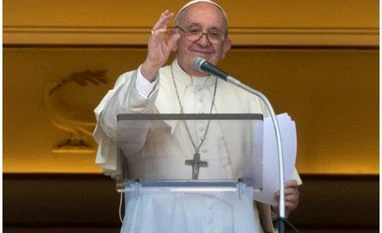The Vatican's Russia-Ukraine diplomacy suffered two setbacks Thursday when the head of the Russian Orthodox Church cancelled a planned meeting with Pope Francis and Ukraine summoned the papal ambassador to complain about Francis' latest comments about the war.
"The Ukrainian heart is torn apart by the pope's words," Ukrainian Foreign Minister Dmytro Kuleba told reporters in Kyiv after the Vatican nuncio was summoned. "It was unfair."
He was responding to Francis' comments about the weekend car bomb slaying in Moscow of Darya Dugina, a nationalist Russian TV commentator and daughter of the right-wing Russian political theorist, Alexander Dugin, who ardently supports the war.
Francis listed the "poor girl" killed by a car bomb in Moscow, as well as orphans in Ukraine and Russia, among the "innocents" who have been victimized by the "insanity of war."
Russia has accused Ukrainian intelligence in the bombing, which Ukraine denies.
Francis has denounced the war in Ukraine but has tried to keep a door open to dialogue with Moscow, refraining from condemning Russia, President Vladimir Putin or the head of the Russian Orthodox Church by name. His balanced approach has angered Kyiv, but it follows the Vatican's tradition of quiet diplomacy and refusal to take sides in a conflict.
That said, Patriarch Kirill cancelled his planned attendance at an interfaith meeting in Kazakhstan next month where he had been expected to meet with Francis, according to his foreign envoy, Metropolitan Anthony of Volokolamsk.
Kirill has justified Russia's invasion of Ukraine on spiritual and ideological grounds, calling it a "metaphysical" battle with the West. He has blessed Russian soldiers going into battle and invoked the idea that Russians and Ukrainians are one people.
Francis had confirmed as recently as last month that he would meet with Kirill at the Kazakh meeting, in what would have been the second-ever encounter between a pope and a Russian patriarch. The first was in 2016 and their second had been planned for June but was postponed over the diplomatic fallout of the war.
)